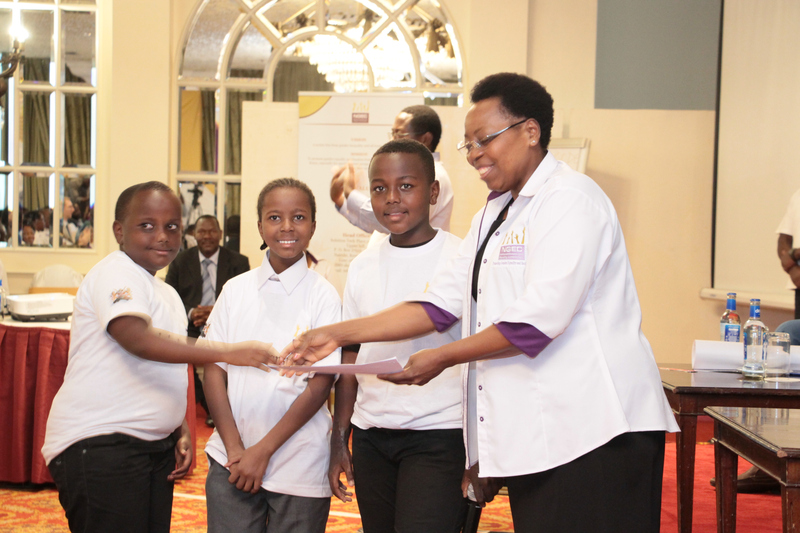STATEMENT ON OBSERVANCE OF THE DAY OF THE AFRICAN CHILD
The National Gender and Equality Commission(NGEC) joins Kenya and the rest of Africa in commemorating the Day of the African Child, which is marked every year, on 16th day of June. This day is commemorated in memory of the students in Soweto, South Africa who in 1976 protested against the poor quality of education they received. It commemorates the brave action they took in defence of their right to quality education.
The theme for 2022 is ‘Eliminating Harmful Practices Affecting Children: Progress on Policy and Practice since 2013’. Here in Kenya, like in other African countries, the commemoration is aimed at re-evaluating the policies, legislation, programmes and approaches that the State has implemented since 2013. Specifically, the celebration offers Kenya an opportunity to take stock of progress made, and reflect on missed and lost policy-related opportunities to effectively eliminate harmful practices affecting Kenyan children.
The UN Committee on the Rights of the Child (OHCHR) describes harmful practices as persistent practices and behaviours that are grounded in discrimination based on, among other things, sex, gender and age[1]. They involve violence and causes of physical and/or psychological harm or suffering, and a violation of children's rights. These practices stem from deeply entrenched social-cultural norms and behaviours including Female Genital Mutilation (FGM), and forced child and early marriages, female infanticide, limiting girls and boys to accessing education and other opportunities in life. Such practices put girls at a disproportionally greater risk.
Kenya’s commitment to eradicating most of the harmful practices has significantly increased over the years. According to the Kenya Demographic Health Survey, 2014 the national prevalence of FGM declined from 32 per cent in 2003 to 27 percent in 2008/2009 and 21 percent in 2014, pointing to a positive trajectory towards total elimination. This has been a result of the favourable legal and policy environment as well as interventions by both state and non-state actors.
The Constitution of Kenya, 2010 explicitly outlaws harmful cultural practices. Specifically, Article 44 (3) bars any person from compelling another person to perform, observe or undergo any cultural practice or rite. Article 53 (1)(d) states that, “Every child has a right to be protected from abuse, neglect, harmful cultural practices, all forms of violence, inhuman treatment and punishment, and hazardous or exploitive labor;” The Marriage Act, 2014 provides guidelines on the types of marriages in Kenya and sets the minimum age for marriage at 18. In 2011, the Government enacted the Prohibition of Female Genital Mutilation (FGM) Act, and in 2015, the
State adopted the National Policy for Prevention and Response to Gender-Based Violence. In 2019, Kenya adopted the National Policy for the Eradication of Female Genital Mutilation and the National Policy on Gender and Development. Other laws and policies include the National Guidelines on the Management of Sexual Violence (2014), the Protection against Domestic Violence Act, 2015, and the Sexual Offences Act, 2006.
During the reference period (2013-2022), the NGEC is pleased to note the several strategic interventions, programs, and practices that Kenya has implemented towards eliminating harmful practices affecting the children of Kenya. For the example, the establishment of the national Anti-Female Genital Mutilation Board in 2013 to coordinate and spearhead multi-agency programs for eradication of FGM, the establishment of the Child Protection Information Management System (CPIMS) in 2016, and the installation of various toll-free helplines by various government agencies including Division of Criminal Investigations, to provide rapid response to cases of child violence. Kenya has also over years improved the quality of data available for different sectors (education, social protection, health, environment and draught management) for planning, budgeting, monitoring, and policy formulation on various matters about child protection. In the past 10 years, the County Governments have invested in different child protection programs that vary by residence, age of children, and county.
In 2020, the Government signed a commitment during the Nairobi Summit on International Conference on Population and Development (ICPD25), to put an end to FGM by the year 2022, and end all forms of gender-based violence by 2026. Kenya is a signatory to other International and Regional instruments which obligate member States to end harmful cultural practices and eliminate violence against women, girls and boys. Target 5.3 of the Sustainable Development Goals (SDGs) for example calls for the elimination of all harmful practices such as, child, early and forced marriage and FGM by 2030, while Goal 51 under aspiration of the Africa Agenda 2063 calls for the elimination of all social harmful practices, and ending barriers that hinder girls and women from accessing quality health and education.
Despite the existence of the aforementioned legal and policy frameworks, Kenya still suffers from multiple harmful practices against children. The Commission is concerned about the emerging forms of harm directed to children in various parts of the country that include; FGM conducted by or under the supervision of medical personnel increased cases of paedophiles related practices, child labour, ‘Cyberviolence’ against children, child abduction and neglect, child exploitation, child radicalism just to mention a few. These crimes contribute to clawing back gains made this far, and present new challenges and gaps to deal with.
As we commemorate this day, therefore, we call upon the Government to continue investing in human, technological and financial resources to ensure the enforcement and implementation of the existing policies and laws. Specifically, there is a need for consultations around necessary policy reforms, resources and public education required to build stronger community-driven programs for eliminating harmful practices against children in Kenya. We truly believe that the enactment of the Children’s Bill 2021, and its implementation will go along away in addressing some of the gaps in the fight against harmful practices directed at children.
The Commission remains committed to discharging its mandate in coordinating, monitoring, facilitating, auditing and reviewing the policy, legislative and program architecture aimed at eliminating all harmful practices affecting Kenyan children.
Our Children, our Future
Dr. Joyce M. Mutinda PhD, EBS.
Chairperson
[1] https://www.ohchr.org/en/instruments-mechanisms/instruments/convention-rights-child, June 2022


Comments